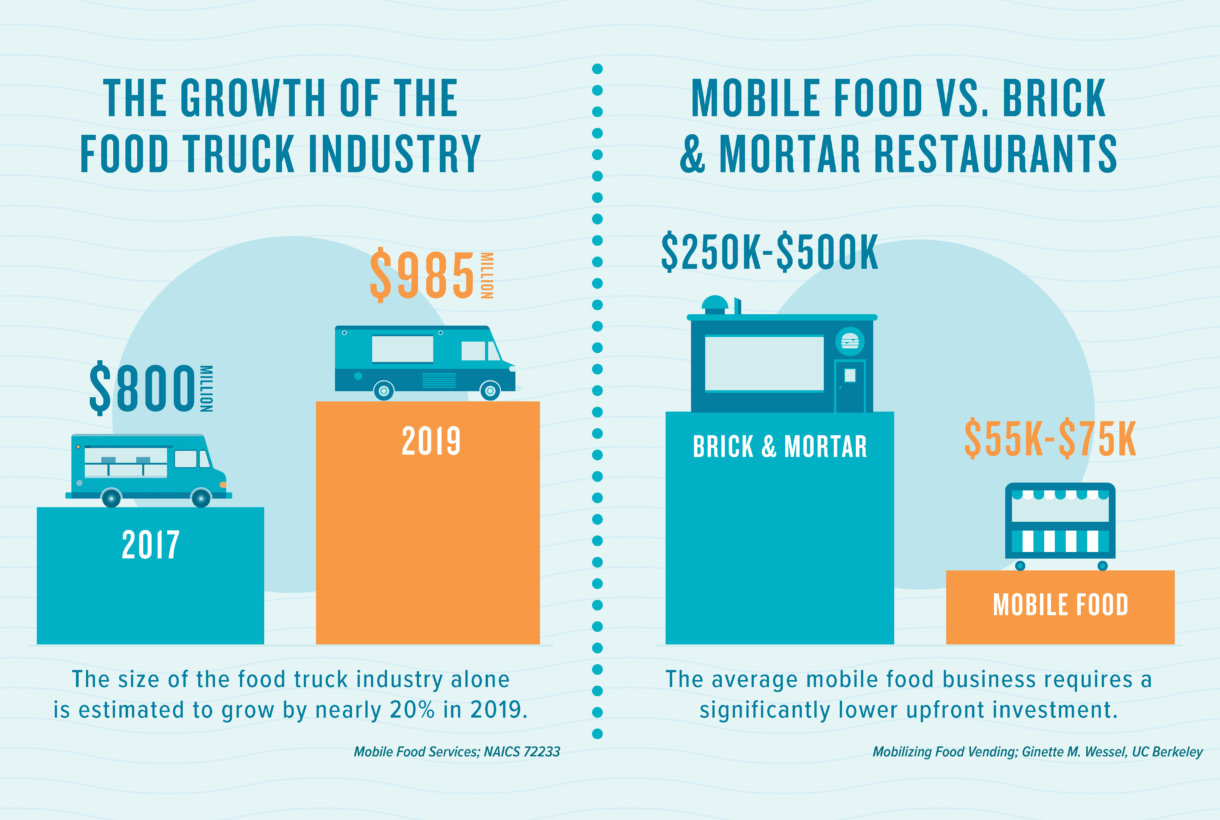


Leading the Mobile Food Movement
Mobile food is where culinary creativity, modular technology and temporary space converge. Less transactional than delivery and more dynamic than a restaurant, mobile food is fueled by diverse, enterprising small business owners who entice diners with exciting options that meet them in the middle.
The State of the Mobile Food Industry in America

In Case You Were Wondering
What is Off the Grid?
Off the Grid is a mobile events platform that unlocks the value of public and private space through curated food experiences, temporary event production and corporate dining.
Acclaimed for reinvigorating the Bay Area street food scene through 60 public events that feed more than 100,000 people weekly, Off the Grid also offers a suite of B2B products and services, including Off the Grid Catering, Off the Grid at Work, and a mobile pop-up kitchen and retail space called Cubert.
Who are the people behind the mobile food movement?
Quick to adapt and unbound by four walls, the enterprising individuals at the helm of the mobile food movement deliver variety and convenience in equal portions via trucks, carts and stalls.
Thanks to the relative ease of market entry afforded by mobile food, coupled with the ability to serve just about anywhere, these businesses are more agile and less
precarious than their fixed counterparts.
Where is the mobile food industry headed?
The food sector today has become increasingly mobile, fragmented, and on demand — a trend that has accelerated across almost every industry for the latter half of the decade.
This new economy has spurred the growth of food delivery services and fast-casual dining outposts that provide diners with first-rate food, quickly.
The only constant through this change has been a growing consumer demand for quality, variety and convenience when it comes to what they eat.
Mobile food, more than other industry, is poised to rise up and meet this demand.
Why does mobile food matter to cities, brands and consumers?
Mobile food is a powerful tool for spurring culinary creativity while uplifting (often underrepresented) small business owner; transforming underutilized space to drive economic vitality and meaningful connections; and building community in the places where it’s needed most.
As a placemaking strategy, shared mobile food experiences help people see anew the potential of everything from parks, waterfronts and plazas, to streets, campuses and vacant buildings.